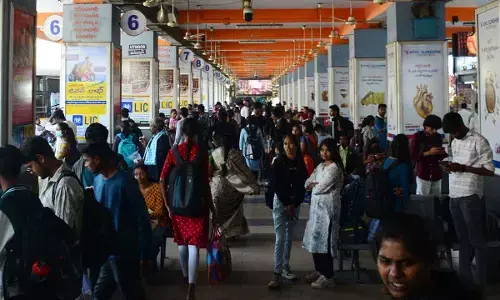Understanding premature initiation of sexual development in India

Early puberty, also known as precocious puberty, is a condition characterized by the premature onset of puberty, marked by the development of secondary sexual characteristics like breast buds, pubic hair, or menstruation before the expected age. In girls, the usual onset of puberty is between 8 and 13 years, and early puberty occurs when these changes manifest before the age of 8. The premature initiation of sexual development can have significant physical, emotional, and social implications for affected children.
Dr Meghna Chawla, Consultant Pediatric Endocrinologist, Ruby Hall Clinic Pune decodes early puberty in India, a closer look at the 2023 study's revelations.
What did the 2023 study by the Indian Council of Medical Research reveal about the prevalence of early puberty in India?
The 2023 study by the Indian Council of Medical Research (ICMR) uncovered a troubling prevalence of early puberty among Indian children. The study revealed that 10.4% of children, predominantly aged 8 to 13, exhibited signs of early puberty, surpassing the global average of 5%. This high incidence underscores the urgent need for further research and effective intervention strategies to address the escalating issue of early puberty in India.
How does the statistic of 10.4% translate to the real-life scenario of 1 in 10 Indian children experiencing early puberty?
The statistic of 10.4% translates to an estimated 13 million children in India experiencing early puberty. This widespread prevalence underscores the urgency of addressing this issue. Early puberty can impact physical development, leading to premature bone maturation and shorter final adult height. Additionally, emotional and social challenges, such as low self-esteem and anxiety, can significantly affect children's well-being.
What emotional changes might children in classes 5-9 experience during early puberty, according to the study?
The ICMR study identified several emotional challenges faced by children in classes 5-9 experiencing early puberty. These challenges include low self-esteem, anxiety, and depression. The premature physical changes associated with early puberty can lead to feelings of self-consciousness and social isolation, contributing to emotional distress. Additionally, the accelerated development can disrupt peer relationships and create a sense of being different from others, further exacerbating emotional difficulties.
Can early menstruation impact a child's growth, or is this a myth?
The misconception that early menstruation stunts growth has been disproven by the ICMR study. The study found no significant correlation between early menstruation and stunted growth in girls. This finding contradicts the prevailing myth and provides reassurance to parents and healthcare providers.
What signs, according to the study, suggest early menstruation in children in classes 5-9?
The ICMR study identified several signs suggestive of early menstruation in children in classes 5-9. Breast development before the age of 8Pubic hair growth before the age of 8Rapid height growthChanges in body odorAcneStart of menstruation (period) before the age of 10.
Why is early detection crucial in addressing the challenges associated with early puberty?
Early detection is paramount in addressing the challenges associated with early puberty. By identifying early puberty promptly, healthcare professionals can provide timely intervention and support to mitigate the physical, emotional, and social consequences. Early intervention can include medical care to manage hormonal imbalances, counseling to address emotional concerns, and guidance to help children navigate the changes they are experiencing.











